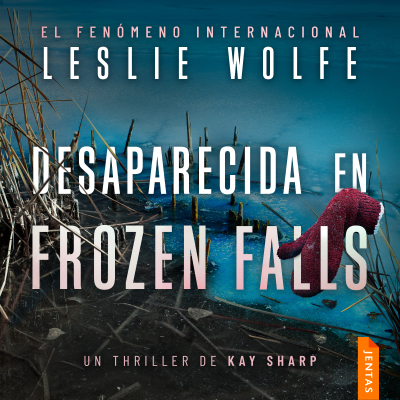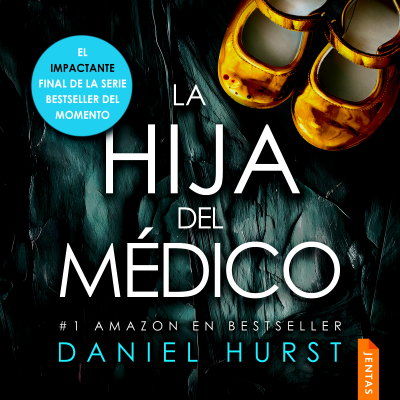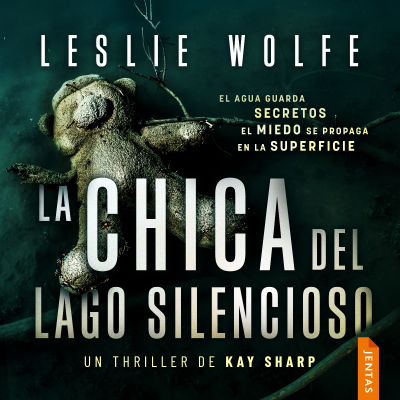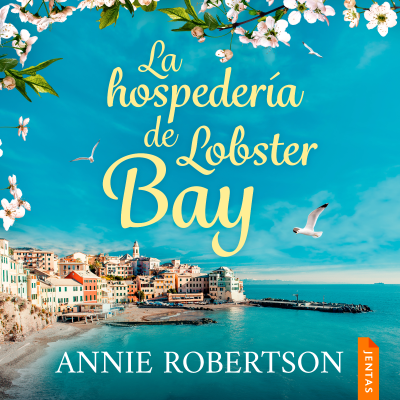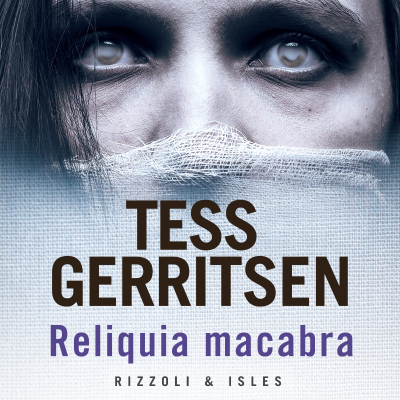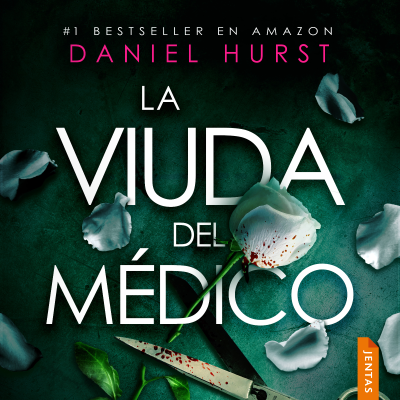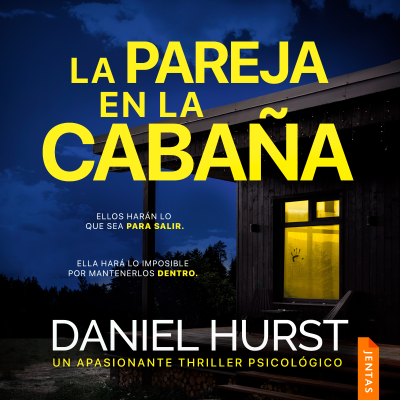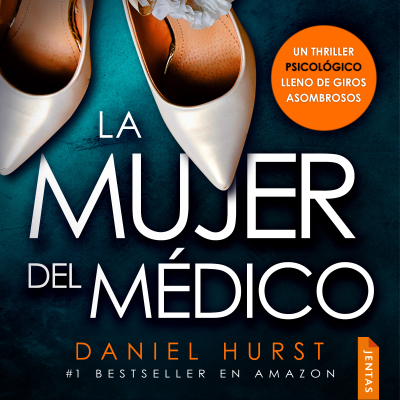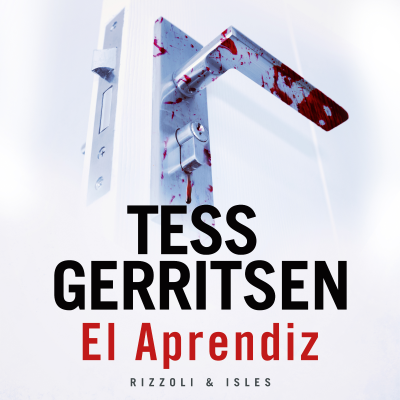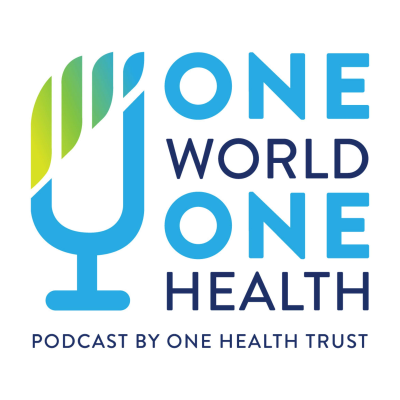
One World, One Health
Podcast de One Health Trust
Disfruta 30 días gratis
4,99 € / mes después de la prueba.Cancela cuando quieras.

Más de 1 millón de oyentes
Podimo te va a encantar, y no sólo a ti
Valorado con 4,7 en la App Store
Acerca de One World, One Health
One World, One Health is brought to you by the One Health Trust. In this podcast, we bring you the latest ideas to improve the health of our planet and its people. Our world faces many urgent challenges from pandemics and decreasing biodiversity to pollution and melting polar ice caps, among others. This podcast highlights solutions to these problems from the scientists and experts working to make a difference.
Todos los episodios
91 episodiosSend us a text [https://www.buzzsprout.com/twilio/text_messages/1961832/open_sms] It’s a common scenario for a cancer patient. They’re undergoing treatment and get what’s known as a peripherally inserted central catheter or PICC [https://www.chop.edu/treatments/peripherally-inserted-central-catheter-picc] (pronounced “pick”) line to make it more convenient to administer drugs. They are in and out of the hospital or just the clinic frequently to see various providers. The treatment they receive may run down their immune system a little bit. Just having cancer may have damaged their immune system. So then they get an infection [https://www.cancer.org/cancer/managing-cancer/side-effects/infections/why-people-with-cancer-are-at-risk.html]. Perhaps it’s no big deal. A round of antibiotics may take care of it. However, increasingly, these infections are resistant to antibiotics – something known as antimicrobial resistance or AMR. Then, the patient must wait weeks or even months to resume cancer treatment while the infection is treated. And, all too often, the infection itself may kill the patient. In fact, infections are the second-leading cause of death [https://vivo.weill.cornell.edu/display/pubid40318645] for cancer patients. Dr. Yehoda M. Martei, Assistant Professor of Medicine (Hematology-Oncology) at the Hospital of the University of Pennsylvania, and colleagues have been working to find out just how common these infections are. Among patients hospitalized for treatment, cancer patients were up to twice as likely to get a drug-resistant infection, she and colleagues found. Among outpatients – people getting treatment at clinics or offices but not staying in the hospital – cancer patients had three times the risk of drug-resistant infections. Listen as Dr. Martei tells One World, One Health host Maggie Fox about her findings, what they mean, and what must be done to protect cancer patients and ensure infections don't stop them from getting the treatment they need.
Send us a text [https://www.buzzsprout.com/twilio/text_messages/1961832/open_sms] It’s a really bad year for measles [https://www.cdc.gov/measles/index.html]. Cases are spiking in countries [https://wwwnc.cdc.gov/travel/notices/level1/measles-globe] where children should have been fully vaccinated, such as the United States, Canada, and Mexico. More than 1,000 cases [https://www.cdc.gov/measles/data-research/index.html] have been reported in the United S [https://www.cidrap.umn.edu/measles/us-measles-total-nears-1100-cases-colorado-reports-airline-cluster]tates just in the first half of 2025, with at least 3 deaths. The death of a child in Texas early in 2025 was the first time a child had died from the infection in the United States since 2003. It’s even worse in Canada, with more than 2,500 reported cases [https://health-infobase.canada.ca/measles-rubella/]. Measles was declared eliminated [https://www.cdc.gov/measles/about/history.html#elimination] in the United States in 2000, thanks to vaccination, but this very infectious virus has come roaring back because of a decline in vaccination. The decline is overwhelmingly linked to fears and false rumors about vaccines – especially the hard-to-kill notion that the measles vaccine might somehow cause autism. Now, one of the leading proponents of this thoroughly disproven idea [https://publichealth.jhu.edu/2025/the-evidence-on-vaccines-and-autism], Robert F. Kennedy, Jr., has become U.S. Secretary of Health and Human Services and he’s bent on both casting more doubt on vaccines, and on renewing fears about autism. He got more ammunition in the spring of 2025 with the latest surveillance report from the U.S. Centers for Disease Control and Prevention showing that about 1 in 31 [https://www.cdc.gov/autism/data-research/index.html], or 3.2 percent, of children aged 8 years old has been diagnosed with autism spectrum disorder. This is up from 1 in 36 in 2020 and 1 in 54 in 2008. Kennedy has called for [https://www.axios.com/2025/04/23/autism-registry-rfk-nih] collecting more data [https://www.npr.org/2025/05/08/nx-s1-5391310/kennedy-autism-registry-database-hhs-nih-medicare-medicaid] on people with autism while also shedding even more doubt on the safety of vaccines in general. The CDC itself still says vaccines do not cause autism [https://www.cdc.gov/autism/faq/index.html], but Kennedy, widely blamed for stoking vaccine hesitancy that helped fuel an outbreak of measles in Samoa [https://apnews.com/article/rfk-jr-samoa-measles-kennedy-vaccines-pacific-42a9cb583c71f165699b16710884c474] in 2019 that killed 83 people, is in a position to further weaken vaccination efforts while spreading misinformation [https://www.factcheck.org/2023/08/scicheck-what-rfk-jr-gets-wrong-about-autism/] about autism. “It takes 10 minutes to create a vaccine scare and at least 10 years to overcome it,” says Dr. Judith S. Miller, a psychologist in the Department of Child and Adolescent Psychiatry and Behavioral Sciences and a senior scientist and training director in the Center for Autism Research at Children’s Hospital of Philadelphia. Better screening and broader criteria are likely the main reason autism diagnoses are on the rise, says Dr. Miller, who is also Associate Professor of Psychology in Psychiatry and Pediatrics at the Perelman School of Medicine at the University of Pennsylvania. Listen as Dr. Miller discusses why it’s a waste of time to re-examine the disproven links between vaccines and autism, why establishing new government databases may actually hold back research, and what autism professionals really need from the federal government.
Send us a text [https://www.buzzsprout.com/twilio/text_messages/1961832/open_sms] Zombie movies may score at the box office and shows about dangerous contagions including “The Last of Us” may be a hit on streaming services, but preparedness for disasters is no winner for American politicians. Every recent U.S. presidential administration has dismantled the pandemic plan [https://apnews.com/article/donald-trump-ap-top-news-virus-outbreak-barack-obama-public-health-ce014d94b64e98b7203b873e56f80e9a] put together by the previous one, notes Dr. Asha M. George, Executive Director of the Bipartisan Commission on Biodefense [https://biodefensecommission.us10.list-manage.com/track/click?u=4c470782d7daabc6a86359639&id=c5f7b9cc82&e=230661c308]. However, the cuts being made [https://onehealthtrust.org/news-media/podcasts/cuts-tariffs-and-tightening-borders-trumps-united-states-and-global-health/] by the new Trump administration to the United States biodefense budget are going deeper than ever before. Global efforts to track diseases including Ebola virus and avian influenza have ended [https://www.science.org/content/article/trump-cuts-damage-global-efforts-track-diseases-prevent-outbreaks]. Among the latest to fall under the axe: the Healthcare Infection Control Practices Advisory Committee (HICPAC), a federal advisory body to the Centers for Disease Control and Prevention (CDC) [https://globalbiodefense.com/tag/us-cdc-centers-for-disease-control/], which had helped shape national infection prevention guidelines [https://globalbiodefense.com/2025/05/07/the-disbanding-of-hicpac-is-part-of-a-larger-dangerous-pattern-of-undermining-health-protections/] meant to keep hospitals safe and contain outbreaks. The loss of the U.S. Agency for International Development [https://www.npr.org/sections/goats-and-soda/2025/03/28/g-s1-56968/usaid-terminates-nearly-all-its-remaining-employees], USAID, has already begun devastating not only global health efforts, but also U.S. national security efforts, multiple experts say. [https://magazine.publichealth.jhu.edu/2025/the-cost-to-global-health] And things were not in a good place to begin with, says George. “The biodefense community is in for the fight of its life to get the funding it needs,” she said in her latest report [https://biodefensecommission.org/the-state-of-u-s-biodefense-written-remarks-by-dr-asha-m-george/] on biodefense. “It was starving before. It is going to be anorexic soon.” Listen as George explains to One World, One Health host Maggie Fox just what’s at risk for the world if the United States doesn’t start paying attention to biodefense.
Send us a text [https://www.buzzsprout.com/twilio/text_messages/1961832/open_sms] The scene on the beach was horrific. Thousands of mothers and baby elephant seals lay in the sand, taken out by a deadly virus. Dr. Marcela Uhart and her colleagues were shocked by what they found [https://www.nature.com/articles/s41467-024-53766-5] after the H5N1 avian influenza virus swept through a colony of elephant seals on the coast of Argentina’s far south Patagonia region. More than 17,000 of the animals had died, their bodies ravaged by the virus. H5N1 bird flu [https://www.cdc.gov/bird-flu/situation-summary/index.html] has swept around the world, destroying poultry flocks [https://www.who.int/publications/m/item/updated-joint-fao-who-woah-public-health-assessment-of-recent-influenza-a(h5)-virus-events-in-animals-and-people_apr2025] and wildlife. Like other influenza viruses, it mutates constantly and swaps genetic material in a process called reassortment. It can now infect not just birds, but livestock such as cattle [https://www.science.org/doi/10.1126/science.adq0900] and sheep as well as mink, pet cats, sea lions, and human beings [https://bnonews.com/index.php/2025/03/3-year-old-child-dies-from-h5n1-bird-flu-in-cambodia/]. It has devastated egg production [https://caes.ucdavis.edu/news/bird-flus-varied-impacts-egg-and-milk-markets] and threatens dairy operations. The biggest fear is that it will acquire both the ability to spread from human to human and maintain its most deadly qualities. An H5N1 pandemic [https://www.who.int/teams/global-influenza-programme/avian-influenza/avian-a-h5n1-virus] has the potential to be much, much worse than Covid-19 was. People can’t be ready for the virus unless the world keeps an eye on it. That’s what Uhart [https://ohi.vetmed.ucdavis.edu/people/marcela-uhart], who is Director of the Latin America Program [https://whc.vetmed.ucdavis.edu/latin-america-program] at the Karen C. Drayer Wildlife Health Center at the University of California, Davis, is trying to do [https://www.youtube.com/watch?v=dREDw8ATiyA]. That’s why her team studied the bodies of the dead elephant seals and other animals killed by the virus. “Mammal-to-mammal transmission could be a stepping-stone in the evolutionary pathway for these viruses to become capable of human-to-human transmission,” they wrote in their report [https://www.nature.com/articles/s41467-024-53766-5], published in the journal Nature. “What we can learn from what happens in wildlife is crucial,” Uhart says. “That is where these viruses evolve.” Listen as Uhart chats with One World, One Health host Maggie Fox about what her team discovered in Patagonia and what it might mean for every animal on the planet, including humans. And listen to our other podcast episodes [https://onehealthtrust.org/news-media/podcasts/whats-surprising-and-scary-about-avian-influenza-right-now/] looking at H5N1 bird flu [https://onehealthtrust.org/news-media/podcasts/watching-out-for-the-ever-changing-bird-flu/] and how we should be preparing for the next pandemic. [https://onehealthtrust.org/news-media/podcasts/preventing-pandemics/]
Send us a text [https://www.buzzsprout.com/twilio/text_messages/1961832/open_sms] Plastic is everywhere [https://oceanconservancy.org/wp-content/uploads/2023/02/Microplastics-Fact-Sheet-FINAL-2.3.23.pdf]. So are drug-resistant microbes [https://www.who.int/health-topics/antimicrobial-resistance]. What happens when the two team up? A raft of new studies show that bacteria can grow well on plastics, especially on microplastics. Other studies show just how widespread [https://magazine.hms.harvard.edu/articles/microplastics-everywhere] microplastics are – they are found in every ocean and sea tested so far. The most startling studies show these tiny bits of plastics can also build up [https://www.sciencenews.org/article/plastic-human-brains-microplastics] in the human body, including in the liver and brain. [https://www.nature.com/articles/s41591-024-03453-1] Science is done piece by piece, study by study, with no single study painting the whole picture. Now a team at Boston University has added one piece to the puzzle, with a study demonstrating [https://journals.asm.org/doi/10.1128/aem.02282-24] that drug-resistant bacteria grow well on microplastics. Neila Gross, a PhD candidate at BU, helped lead the research. Her team confirmed that E. coli bacteria form mats known as biofilms [https://www.cell.com/trends/microbiology/fulltext/S0966-842X(20)30190-6?_returnURL=https%3A%2F%2Flinkinghub.elsevier.com%2Fretrieve%2Fpii%2FS0966842X20301906%3Fshowall%3Dtrue] especially well on microplastics. The team found that antibiotic-resistant bacteria grew better when they were grown on microplastics. This raises a specter of billions of tiny pieces of plastic spreading [https://pmc.ncbi.nlm.nih.gov/articles/PMC9920460/] drug-resistant bacteria around the world and being ingested and breathed in by animals from shellfish to marine mammals and, likely, people. Listen as Neila chats with One World, One Health host Maggie Fox about how this happens and what it might mean for the spread of antimicrobial resistance.

Valorado con 4,7 en la App Store
Disfruta 30 días gratis
4,99 € / mes después de la prueba.Cancela cuando quieras.
Podcasts exclusivos
Sin anuncios
Podcast gratuitos
Audiolibros
20 horas / mes














